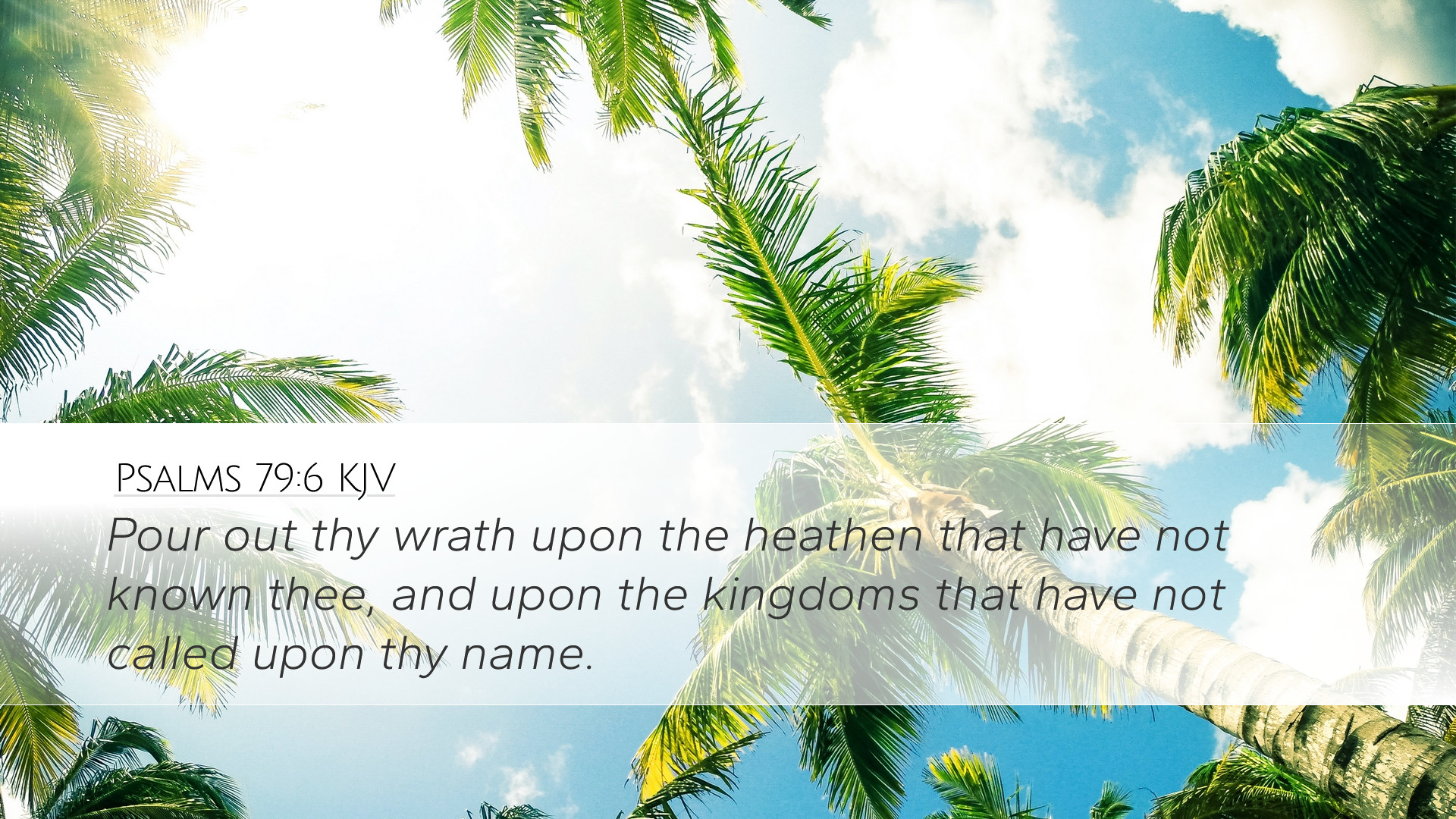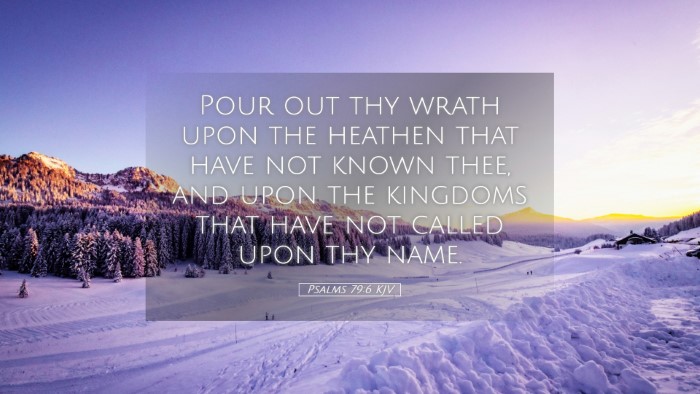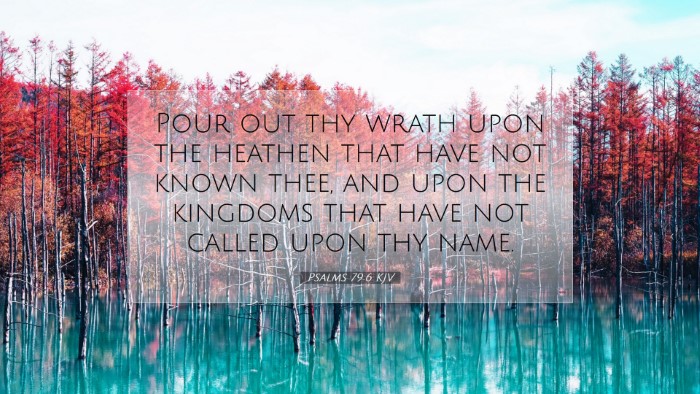Commentary on Psalms 79:6
Psalms 79:6: "Pour out your wrath upon the nations that do not know you, and upon the kingdoms that do not call upon your name!"
Introduction
This psalm, attributed to Asaph, is a communal lament reflecting the anguish of the people of Israel in the face of calamity and foreign oppression. In verse 6, the plea for divine judgement against the nations is not merely one of vengeance, but rather a cry for the vindication of God's glory and name among the earth. Understanding this verse requires examining the theological implications of God's wrath and the relationship between the Lord and the nations.
Theological Reflections
In this verse, the psalmist calls upon God to enact His righteous wrath upon the nations. This invocation carries significant theological weight, as it affirms the belief in God’s sovereignty over all people and nations. It serves as a reminder that God’s justice is not limited to Israel alone, but extends to all creation.
Matthew Henry emphasizes that the psalmist’s call for God's wrath represents a desire for the sanctity of God's name to be upheld. Henry notes that God’s anger is justly directed towards those who persist in ignorance of Him. The acknowledgment of God’s sovereignty becomes essential, showcasing that all civilizations are accountable before Him.
Albert Barnes offers insights into the implications of invoking God’s wrath. He discusses the characteristics of those nations that do not know God or seek Him, characterizing them as morally deficient and blind to divine authority. Barnes asserts that it is not merely a wish for revenge but a plea for God’s righteousness to be recognized and upheld among the nations, thus restoring order and justice.
Adam Clarke, with his characteristic depth, highlights the historical context of this plea. Clarke explains that Israel, having experienced the calamities brought upon them by foreign nations, seeks divine intervention. He notes that the suffering people of God desire not only relief but also the punishment of their oppressors as a means of restoring the moral fabric of society and affirming God’s righteous rule.
Understanding Divine Wrath
The concept of God's wrath is often seen as a stark and fearful element of His character; however, it is essential to recognize that this wrath serves a purpose. It is an expression of God’s holiness and His displeasure towards sin. The psalmist’s request for God's wrath is an appeal for God to correct the wickedness pervasive among the nations.
- Justice: God's wrath is an affirmation of His commitment to justice. In the face of widespread injustice perpetrated by the nations, the call for divine correction underscores the expectation that God will adjudicate the acts of all nations.
- Vindication: The psalmist seeks vindication not only for Israel but for the holiness of God’s name in all the earth. This plea reflects a desire that the justice of God be recognized universally, thus restoring a sense of divine order.
- Awakening: The invocation of wrath can also serve as a means to awaken nations to acknowledge God. The hope is that, through divine intervention, the nations may come to fear the Lord and turn towards Him.
Application for Modern Believers
For pastors, students, theologians, and Bible scholars, Psalms 79:6 offers profound implications for understanding God's justice and mercy. The challenge lies in balancing the desire for divine intervention with the calling to extend grace and mercy. The following applications arise from this text:
- Intercessory Prayer: Believers are encouraged to engage in deep intercessory prayer, not restlessly seeking vengeance, but asking for God's righteousness to prevail across the nations. This aligns the believer's heart with God's desire for all people to recognize His sovereignty.
- The Weight of Accountability: Just as the nations are accountable to God, so too are individuals and communities today. Believers are called to act justly and to encourage others to recognize God’s authority in all aspects of life.
- Compassionate Outreach: Rather than solely calling for judgment, believers are reminded to emphasize love and reconciliation. The prayer for God’s wrath can coexist with a desire for the nations to turn in repentance and experience His grace.
Conclusion
Psalms 79:6 is a powerful reminder of the complexities of God's relationship with humanity, especially in terms of justice and mercy. The psalmist’s plea for God’s wrath against those who do not know Him encourages believers today to seek God’s justice while also proclaiming His love and mercy to a world in desperate need of both. This dual emphasis shapes our theology and influences our practice as we engage with God’s mission for all nations.


